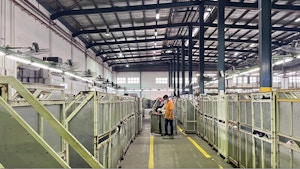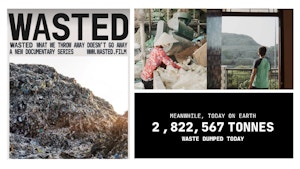#consumerism News

Follow the region's used textiles on a journey through sorting, upcycling and recycling as they are diverted from the landfills.

The prevalence of a "sachet economy" is stretching waste management capabilities in the country. Lawmakers are suggesting an amendment of the current Extended Producer Responsibility Act to expand its coverage to include medium-sized firms.

Policy & Finance
‘No one left behind’: Simplified guide hopes to push sustainability disclosures among Malaysian SMEs
EB Studio
Small-to-medium-sized enterprises (SMEs) play a crucial role as the unacknowledged economic backbone of Malaysia, accounting for 38 per cent of the nation's GDP. However, these enterprises face obstacles in adopting sustainability compliance, primarily due to insufficient funding, expertise and manpower.

The concept of 15-minute cities is gaining traction around the world, but so are conspiracy theories calling it the start of "climate lockdowns".
#consumerism Opinion

In Indonesia and in other Southeast Asian nations, multilayer sachets are at the core of the plastic crisis. If companies such as Unilever and Procter & Gambles are serious about being part of the solution to the plastics crisis that they has helped create, they must commit to banning sachets – a desired outcome of the The Global Plastics Treaty.

Food & Agriculture
The food system revolution is coming
Last year’s farmer protests in New Zealand, for example, showed how abruptly climate policies can be disrupted when workers and communities feel left out. Policymakers and corporate leaders need to get in front of the issue now.

If sustainability really was at the heart of everything businesses did, the planet probably would not be 1.2°C warmer than it should be. It's time for corporates to stop using the same meaningless catchphrase – or risk alienating consumers

Asia is well-positioned to play a leading role in advancing the global plastic treaty. Indonesia and India provide good examples of how proactive national action plans can help unlock finance and encourage innovation in the private sector.
Food & Agriculture
How technology can help address challenges in agriculture
Food & Agriculture
The sweet complexities of maple syrup
#consumerism Videos

Launched as policymakers lock horns with petrochemicals lobbyists over a treaty to end plastic pollution, the documentary produced by Eco-Business asks why opportunities to solve humanity's waste crisis are being wasted. It will premiere in Singapore and screen on the sidelines of the upcoming COP28 climate summit.
#consumerism Podcasts

Policy & Finance
‘Never give in to fear’: Nobel peace prize nominee and Filipino Indigenous leader Vicky Tauli Corpuz
In celebration of Indigenous Peoples' month in the Philippines, the former United Nations special rapporteur tells the Eco-Business Podcast about her lifelong work to empower communities in Asia’s most dangerous country for environmental defenders.

Japan-based academic Kim Schumacher, who coined the term "competence greenwashing", believes that the pursuit of societal harmony might be standing in the way of Asia calling out greenwashing. He tells the Eco-Business Podcast how exaggerated ESG claims are likely to be tackled in 2023 and beyond.

Greenwashing has become a big problem for consumers, investors and regulators as brands spend millions on marketing their sustainability credentials. Eco-Business asked expert communicators Janissa Ng and James Lorenz why greenwashing is so dangerous, and what can be done to stop spin in sustainability communications.
#consumerism Press Releases

United Nations Environment Programme
UNEP, UN Climate Change provide fashion communicators with practical guide to contribute to sustainable change
#consumerism Research

Wunderman Thompson
Wunderman Thompson launches regeneration rising: Sustainable futures

Accenture and WWF-Singapore
Sustainability in Singapore—consumer and business opportunities

WWF-Singapore
The business case for a UN treaty on plastic pollution
















